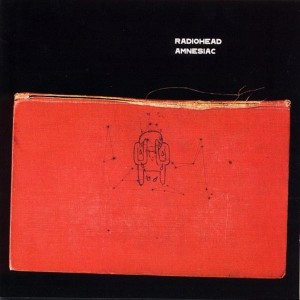Music Sales Counted By Number of Units, While Movie Sales Counted in Dollars. Why?!
Every week, a couple of media stats make for a few news stories and analysis. One is the weekend movie box office, noting how many millions the latest Harry Potter or Twilight movie brought in. The other stat is the weekly music sales, telling you how many tens of thousands of albums Adele has sold. Notice a difference? The movie sales are quoted in dollars/pounds/other currencies, while music sales are quoted in number of units shifted, not dollar value. This likely happens because studios and such get a percentage of the gross sales, but is it necessary to quote this to the general public? You don’t say “I saw Batman $30 worth of times!” Below I’ll explain why I think that reporting movie sales in dollars is a highly flawed system.
1 – You need to account for inflation
When the second (and inferior) Star Wars trilogy came out, everyone was wondering how it would do versus the original trilogy at the end of the 70s and beginning of the 80s. The media noted the dollar value, but then quickly followed that up with “in 1999 dollars”, having to change the 1977 film to be up to date with the current comparison. This seems like a ridiculous calculation, and not one that anyone can do when looking at the raw numbers. Pretty much everyone knows that Avatar is the highest grossing film of all time, but when you account for inflation, it becomes Gone With The Wind (which very few people probably know).
If someone asks you “What’s the highest grossing film of all time?” are you going to reply “Including inflation or no?” Probably not.
2 – Sales are skewed by 3D prices, IMAX, or cheap movie nights
Now this is slightly ridiculous – because the new Batman film, the Dark Knight Rises, is not being released in 3D, it might have more people watching the movie than the Avengers, but despite that it will not earn more at the box office (via Canoe). The admission price is higher for 3D films, meaning that even if fewer people see The Dark Knight Rises, the fact that the Avengers was shown in 3D could keep it with a higher box office pull.
3 – You need to convert to local currencies if discussing in another country
If I tell you that The Dark Knight Rises had ticket sales of $200 million this weekend, you’ll need to convert to pounds if curious to what that means here in the UK. How about if I told you Star Wars: A New Hope made $700 million in 1977. First, you’d need to convert to pounds – at the currency rate that was relevant in 1977 – and then account for inflation. Alternatively, you could do the inflation and then the currency conversion, but I digress. Doesn’t this seem ridiculous?
Why Music Does It Better
Absolute value is something people can relate to. An album or ticket sale in India is equivalent to an album sale in South Africa. If someone bought a Pink Floyd album in Brazil in 1975, it is equal to a Pink Floyd album sale in Mexico in 2012. If I told you Oasis sold 5 million albums in the UK in 1995, you know what that means. It’s tangible and you can relate to it. No fancy conversions, no inflation, no need to do fancy math if HMV had a Boxing Day sale on albums.
If movie execs like saying “$20 million tickets were sold – it’s the number one number”, I don’t care about the dollar value, I care that it’s number 1 at the box office (note: I personally don’t care, but someone might). People “pay” to go see a movie, and this might be why it is reported as such, but people buy an album, and the music industry still goes with units sold. So can we just convince Hollywood to change this and make life easier for everyone?















